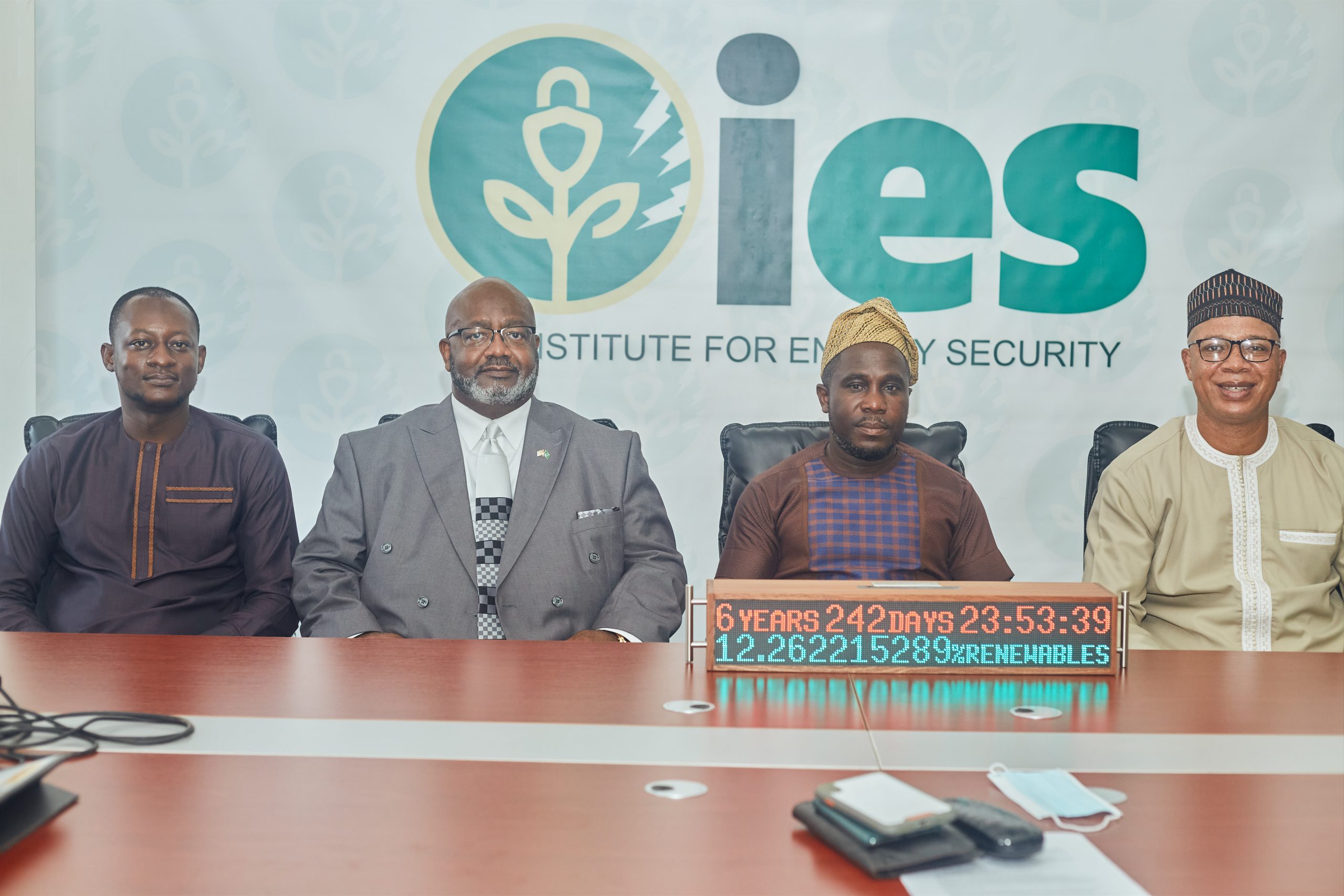The Institute for Energy Security (IES) has received a World Climate Clock – the first of its kind in Ghana, for its leading role in the fight against climate change.
The World Climate Clock was presented by Jerome Ringo, the Founder and Chairman of Zoetic Global and goodwill ambassador for the Pan-African Parliament in Accra. It shows the amount of the world’s energy supplied from renewable sources, currently at 12 percent and slowly rising. A timer counts down the years, days and seconds that scientists estimate are left to reach net zero carbon emissions and avoid the most catastrophic effects of climate change.
So far, United States President Joe Biden and Nigeria’s Muhammadu Buhari are among recipients of the clock, with IES the second recipient in Africa and fifth in the world overall. A similar countdown is projected on Scotland’s Tolbooth Steeple, a landmark building in Glasgow. It will light up every night for the six months between Earth Day and the U.N. climate conference being held there in November.
“The clocks are meant to remind people of the limited time we have to fix this global problem,” Mr. Ringo said, adding that Africa suffers disproportionately from the effects of climate change.

Mr. Ringo, who is also the former chairman of the US National Wildlife Federation, plans to deliver similar clocks to the Emir of Qatar before the 2022 FIFA World Cup tournament in the Arab country, as well as Burkina Faso.
He explained that the ultimate goal of bringing the climate clocks to Ghana and Africa is to promote home-grown energy-efficient and renewable energy solutions throughout the continent.
“This is a call for us to do more to safeguard our environment and planet,” says IES Chief Executive Officer, Nana Amoasi VII, after receiving the clock. “It will encourage us to continue with what we are doing; advocate for right policies to curb climate change.”
He added that efforts to increase the uptake of renewable energy in the country from the current one percent are being frustrated by the ban on Power Purchase Agreements (PPAs) and misconceptions that renewables could threaten the viability of the Electricity Company of Ghana (ECG).
Rather, he said, an increase in renewables will not only make the ECG more efficient but put the country on the sustainable and reliable energy that is needed for economic growth and development.










